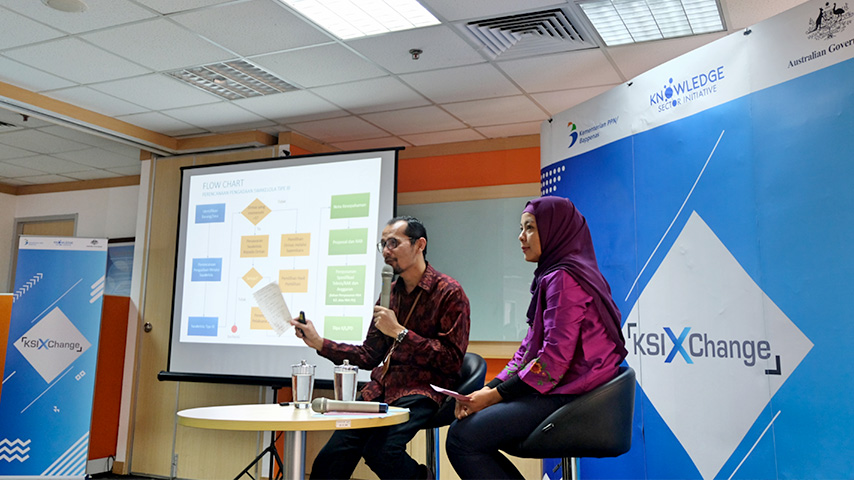Presidential Regulation No. 16/2018 on public procurement is a breath of fresh air for civil society organisations focused on improving public services. In addition to enabling civil society groups to access government funds, the regulation will also encourage these groups to improve their financial management and be more accountable. Government procurement was previously regulated under Presidential Regulation No. 54/2010, which only allowed commercial companies to tender for government contracts. Civil society organizations could not participate in tenders unless they established a company.
"The engagement of civil society organisations, as representatives of the people, provides added-value to the tender process,” Fadli Arif, Director of Strategy and Policy Development for General Procurement of the National Public Procurement Agency (LKPP), said during an KSI x Change event on Sep. 19 on the theme of “Working Together to Deliver Services: Opportunities and Challenges for CSOs and Government’.
The regulation was revised following intense coordination between LKPP and several research organisations, namely, AKATIGA Centre for Social Analysis, the Centre for Law and Policy Studies (PSHK), and the Institute for Policy Research and Advocacy (ELSAM). Coordination was facilitated by the Knowledge Sector Initiative (KSI), which supports the improvement of public policy based on research and good practice.
The revision process began in 2014 when KSI arranged a meeting between LKPP and its partners. After the meeting, a series of studies and discussions, which engaged the Ministry of Research, Technology and Higher Education, the Supreme Audit Agency (BPK) and academics, were held to develop the revised draft. The draft was completed in December 2016 and discussed in a limited cabinet meeting. The new regulation was eventually legalized in March 2018.
As a follow-up, LKPP has developed implementing regulations to support the roll-out of Presidential Regulation No. 16/2018. AKATIGA, with support from KSI, provided input to LKPP on these regulations.
For civil society organisations, an important change in the regulation are the amendments to the section on self-managed projects (swakelola). Self-managed projects are those in which ministries, institutions, regional bodies and civil society groups directly procure goods and services.
“We tried to simplify the self-managed project mechanism, so that this can be used as an alternative method of procurement for the government in delivering services, and a way for civil society organisations to run their programs,” said AKATIGA senior researcher Isono Sadoko.
Engagement of Civil Society
In a self-managed project with a civil society organisation, the government would plan and oversee the project, but implementation would be the responsibility of organization. Civil society organisations would be involved from the planning stage.
“For example, if goods and services that the government needs cannot be provided by commercial companies, the government can open up the tender process to other organisations,” Fadli said.
Engagement of civil society organisations from the beginning can help the government develop programs that more effectively meet the needs of the public. Civil society organisations who tender need to be accountable. They must be registered as foundations or associations with the Ministry of Law and Human Rights, have a tax file number (NPWP), pay taxes and have audited financial statements for the past three years. They should also demonstrate that they have the management skills and technical experience to implement the project.
Procurement of civil society organisations through the self-managed project mechanism can either be through direct appointment or open tender, in which organisations submit proposals. The new approach will be piloted in Jakarta and Kulonprogo.
Isono said that self-managed projects implemented by civil society organisations would be more effective and efficient compared to those implemented by commercial companies. Civil society organisations often have strong networks in local communities that commercial companies don’t have. By using civil society organisations to deliver services, the government can better reach those who live in remote places, minorities or vulnerable groups such as women, children, adolescents, and people with disabilities.
The self-managed project mechanism could also be used for research, given that commercial companies were not always interested in certains kinds of research. For KSI, the new regulations are a positive step towards better provision of public services and more sustainable civil society organisations.
See related publication and video.






